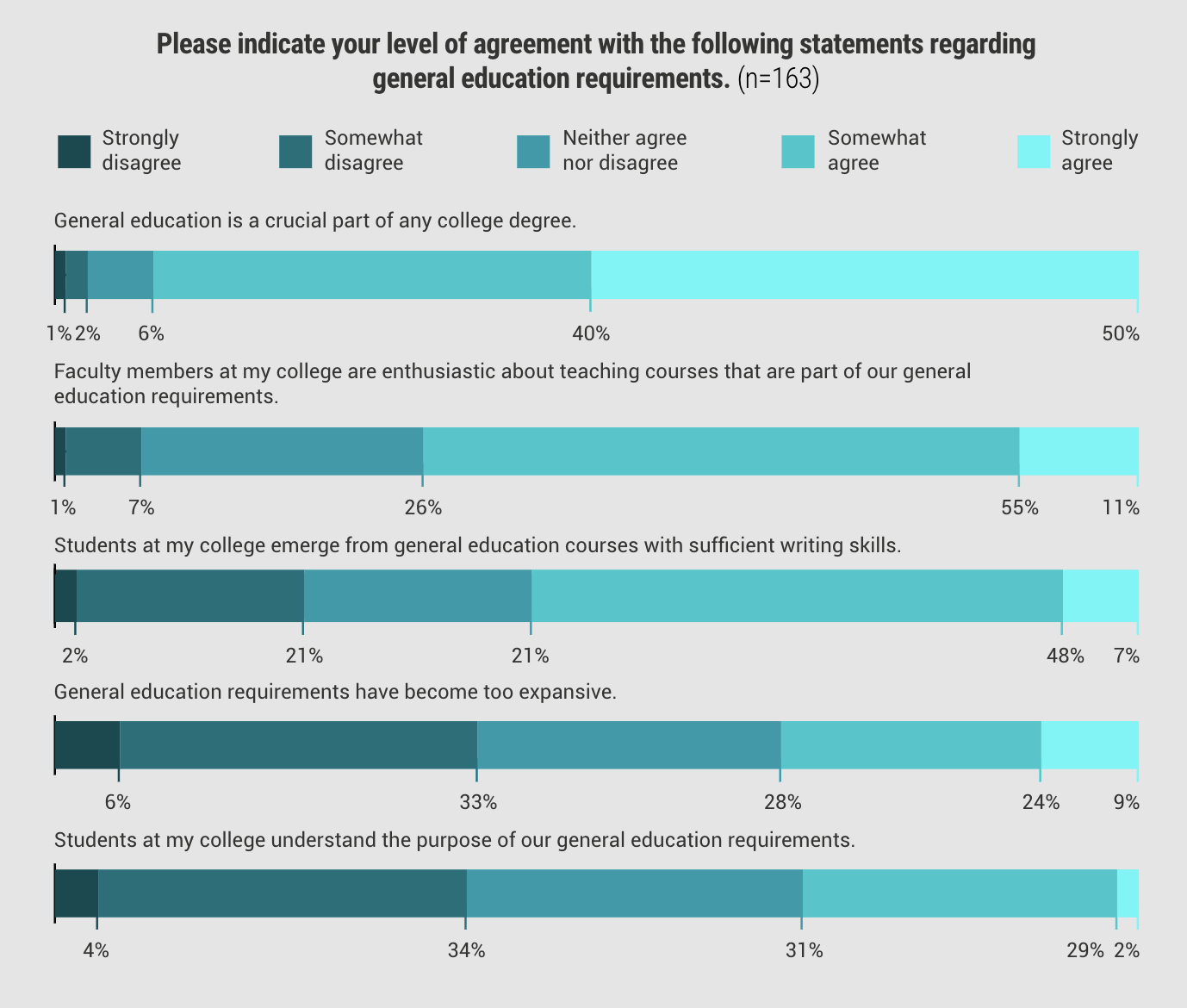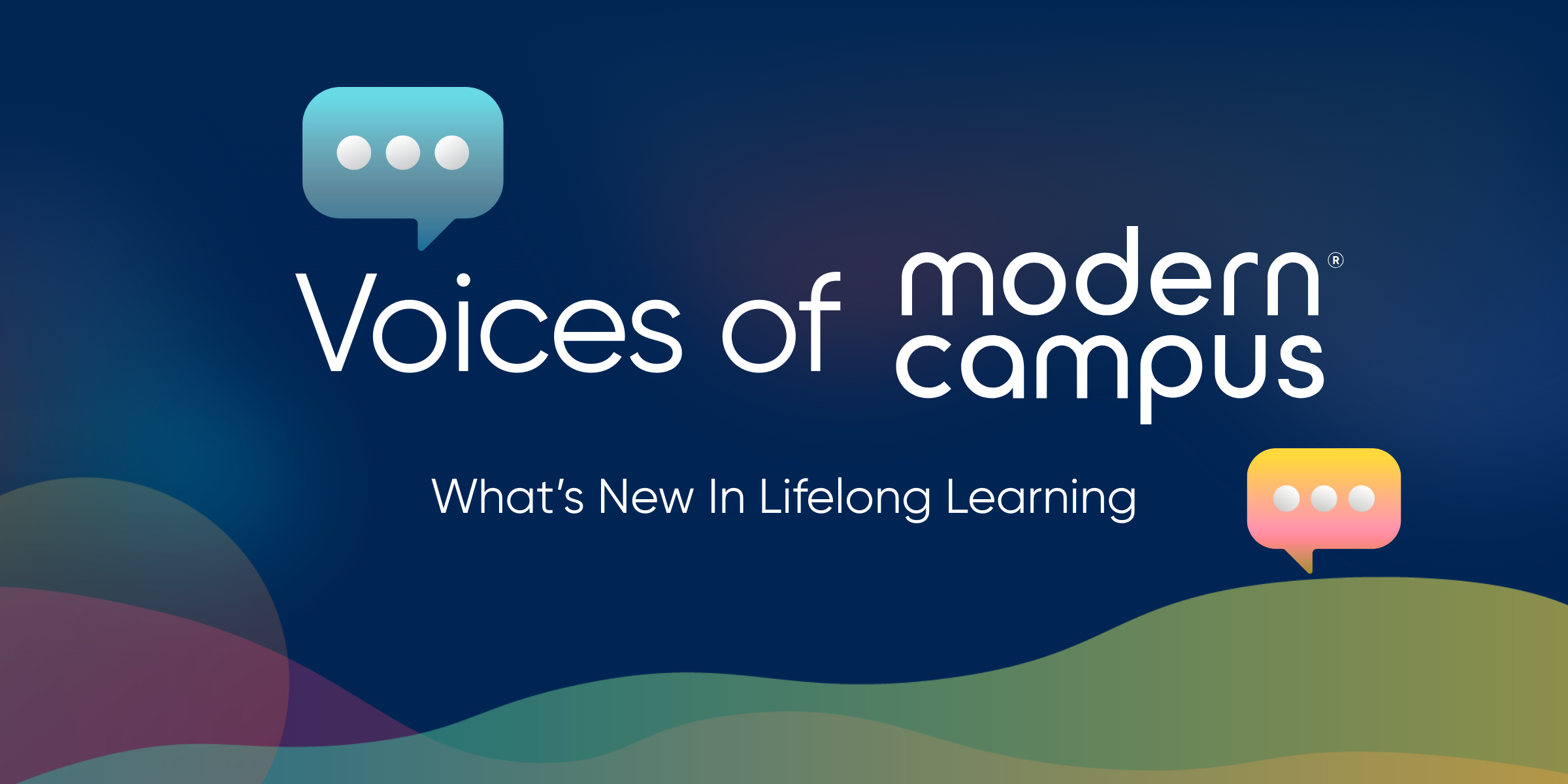How Modern Registrars Can Communicate the True Value of General Education
The great general education debate never gets old.
The 2022 Survey of College and University Chief Academic Officers conducted by Inside Higher Ed and Hanover Research and sponsored by Modern Campus, highlights a massive discrepancy between the value of general education (commonly known as “Gen Ed”) and its perception among today’s learners.
An overwhelming 90 percent of provosts believe that general education requirements are a crucial part of any college degree, yet only 32 percent agree that their students understand the purpose of such requirements.

This data, however ironic, may not be surprising, given that general education requirements have long been misunderstood and even controversial. The report highlights a gap that needs to be filled in order to address a bigger concern: the incompletion rate. Around 33% of undergraduates leave college without a degree and with an average loan debt of over $10,000. Student loan amounts increased in both 2020 and 2021, but it’s not necessarily leading to more completions. Diving into the data, lack of academic and career guidance contributes to drop-outs. Inside Higher Ed’s research—and the confusion around Gen Ed specifically—only emphasizes how dire students’ need for guidance is.
Most academic leaders agree that the goal of general education is to develop students’ essential skills to power their employability. But this goal is often left unrealized. Since many students do not see the connection between general education requirements and their career goals, they may not feel motivated to take courses outside of their major, and lacking purpose is the quickest way to failure.
The good news is that this gap—between requirements and student buy-in—can be easily closed. The solution begins with registrars.
The role of registrars has evolved in recent years; they are no longer just academic record keepers.
“I hate the words registrars have used for years: ‘We are the gatekeepers of academic records’,” said Rod Parks, University Registrar, Assistant Vice President and Assistant Professor at Elon University in an interview with The EvoLLLution.
Rod’s words resonate with many modern registrars who do a lot more than record keeping and can bridge this gap for learners and for the institution.
Here are two ways registrars can help improve student persistence and completion:
1. Registrars can think like academic advisors, helping students understand their academic pathways.
Modern technology has transformed the registrar’s office. It is more automated than ever before, resulting in more efficient workflows and allowing registrars to focus on mission-critical work.
“Registrars need to help students understand what they do and how they can help them.” says Tina DeNeen, Associate Executive Director of the American Association of Collegiate Registrars and Admissions Officers.
“Registrars, along with academic advisors, can be an academic lifeline for students,” she says. “Implementing frequent checkpoints and early warning systems, so students know their status and can correct course before they dig a hole for themselves, is vital to both retention and success.”
2. Registrars can leverage student data to inform retention strategies
The amount of student data registrars can access and the kind of technology they can leverage places them in a unique position to guide strategic decisions that impact student engagement and retention.
“The data we provide should be able to paint that picture of what a successful institutional student looks like, how we retain current students, what challenges institutional students face and what changes we need to make to improve retention,” says Parks. “For example, our institution loses about 10% of our students in the first year. Is there a specific path analysis that the registrar’s office can assist with to help the institution know what changes to implement to retain the student?”
Bringing Technology and Philosophy Together to Drive Learner & Institutional Success
There is a lot that modern registrars are doing to support their institutions, but they can do more. They just need two things: the right mindset and the right technology.
“Registrars know the data well, so there’s no reason they can’t be creative in solving campus problems,” says Deneen. “But they must start moving from that culture of ‘no’ to one of innovation and sharing.”
According to Sarah Rogers, Director of Enrollment Management at Albany State University, the combination of student-centric technology and philosophy can transform the work registrars and enrollment management professionals do—ultimately benefitting learner engagement.
“When I'm advising a student with Modern Campus Register, I'm able to spend more time talking with them about what they need, about their future plans, about things they've incurred over the past couple of semesters, and broadly what they are looking for from Albany State. I don’t need to worry about when their classes are, or which sections we can get on certain days,” she said. “It has made the course scheduling part go a lot quicker so that we can focus on other items in their lives and in their educational journey.”
Modern Campus is the trusted partner of registrars, academic affairs professionals and enrollment management leaders—ensuring their critical work is done with high efficiency and with an eye on student success. The Connected Curriculum suite by Modern Campus is designed to support teams in academic affairs, enrollment management and the registrar’s office. It allows registrars to automate their routine workflows and start focusing on more important and strategic areas.
Last updated: June 30, 2022



